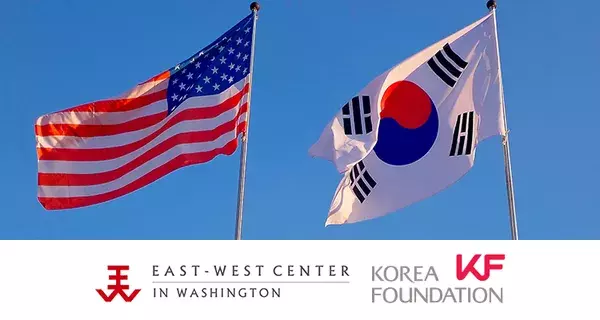Error message

OFFICE/DEPARTMENT
The East-West Center in Washington (EWCW) offered a year-long, collaborative policy research and exchange program, generously sponsored by the Korea Foundation, for three established scholars, one each from Korea, Southeast Asia, and the United States, respectively. The three selected researchers assessed how their respective countries are collaborating to bolster US-ROK cooperation in Southeast Asia in the areas of trade, investment, and in supporting multilateral efforts in the region, including in light of the COVID-19 global pandemic.
Selected fellows:
Mr. Julio S. Amador III, Interim President, Foundation for the National Interest. Research topic: US-ROK- Philippines defense cooperation. Residency (virtual): May - November 2021. Webinar | Asia Pacific Bulletin
Mr. Seth Hays, Chief Representative, Asia-Pacific, International Trademark Association (INTA). Research topic: US-ROK cooperation on intellectual property rights issues. Residency (virtual): May - November 2021. Webinar | Asia Pacific Bulletin
Ms. Sea Young (Sarah) Kim, Soon to be PhD candidate, Graduate School of International Studies, Yonsei University. Research topic: US-ROK cooperation on climate change issues in Southeast Asia. Residency (virtual): May - November 2021. Webinar | Asia Pacific Bulletin
Selected fellows did the following:
- Participated in five closed, online program workshops, which featured guest speakers;
- Presented their findings online both via EWCW’s Indo-Pacific Seminar series as well as at a virtual concluding conference with assembled experts
- Prepared their research for publication in either the East-West Center’s AsiaPacific Issues series or Policy Studies series. Due to the peer review process of these publications, researchers will, if necessary, continue to work with EWCW upon the conclusion of the program.
- Findings were also published as 1,000-word Asia Pacific Bulletins to ensure the dissemination to policymakers and stakeholders such as researchers in the academic and policy analyst communities, students, and the media.
The East-West Center in Washington (EWCW) offered a year-long, collaborative policy research and exchange program, generously sponsored by the Korea Foundation, for three established scholars, one each from Korea, Southeast Asia, and the United States, respectively. The three selected researchers assessed how their respective countries are collaborating to bolster US-ROK cooperation in Southeast Asia in the areas of trade, investment, and in supporting multilateral efforts in the region, including in light of the COVID-19 global pandemic.
Selected fellows:
Mr. Julio S. Amador III, Interim President, Foundation for the National Interest. Research topic: US-ROK- Philippines defense cooperation. Residency (virtual): May - November 2021. Webinar | Asia Pacific Bulletin
Mr. Seth Hays, Chief Representative, Asia-Pacific, International Trademark Association (INTA). Research topic: US-ROK cooperation on intellectual property rights issues. Residency (virtual): May - November 2021. Webinar | Asia Pacific Bulletin
Ms. Sea Young (Sarah) Kim, Soon to be PhD candidate, Graduate School of International Studies, Yonsei University. Research topic: US-ROK cooperation on climate change issues in Southeast Asia. Residency (virtual): May - November 2021. Webinar | Asia Pacific Bulletin
Selected fellows did the following:
- Participated in five closed, online program workshops, which featured guest speakers;
- Presented their findings online both via EWCW’s Indo-Pacific Seminar series as well as at a virtual concluding conference with assembled experts
- Prepared their research for publication in either the East-West Center’s AsiaPacific Issues series or Policy Studies series. Due to the peer review process of these publications, researchers will, if necessary, continue to work with EWCW upon the conclusion of the program.
- Findings were also published as 1,000-word Asia Pacific Bulletins to ensure the dissemination to policymakers and stakeholders such as researchers in the academic and policy analyst communities, students, and the media.

